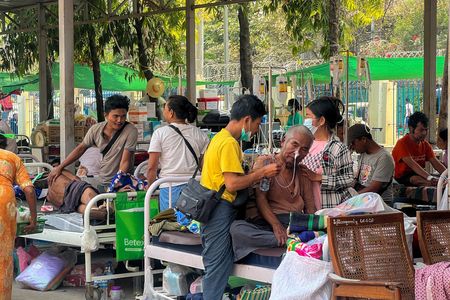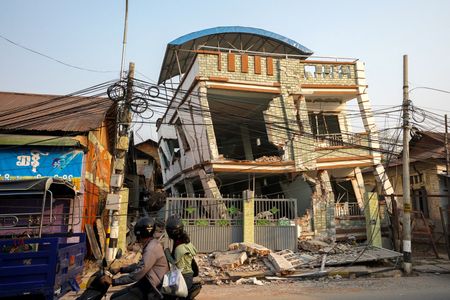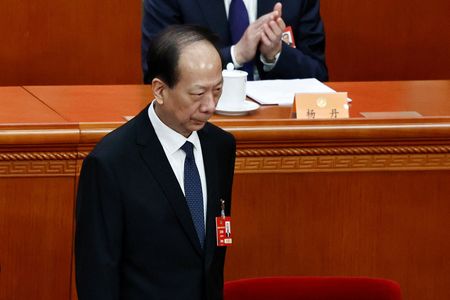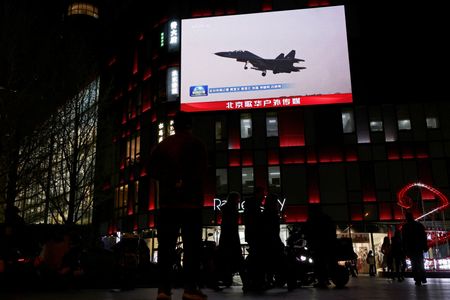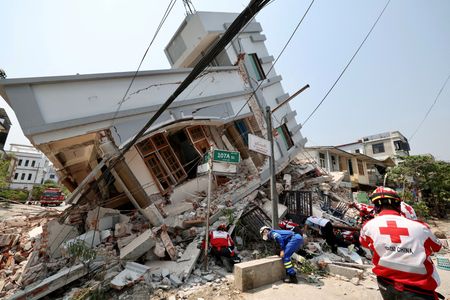By Olivia Le Poidevin
GENEVA (Reuters) – Shelter, clean water and medicine are in short supply following the earthquake in Myanmar that has caused significant structural damage and had a devastating human toll, the United Nations’ Office for the Coordination of Humanitarian Affairs (OCHA) said on Tuesday.
A 7.7 magnitude earthquake on Friday, which killed more than 2,700 people and left more than 4,500 injured, severely damaged critical infrastructure including major bridges and roads.
“The time window for critical search and rescue is narrowing … Shelter, clean water, medicine are in short supply. People in affected areas spent the night in the open because there is no electricity or running water,” OCHA’s Myanmar Resident and Humanitarian Coordinator Marcoluigi Corsi told reporters in Geneva via video link from Yangon.
Multiple UN Agencies have raised the alarm about the shortage of drinking water, with concerns of cholera spreading.
“It is really dire – the most immediate need is water, it is super hot out there…Water pipes and septic tanks have broken,” said Julia Rees, UNICEF’s Deputy Representative, via the video link.
The World Health Organization said hospitals were overwhelmed and that medical supplies were running out, and that there were shortages of running water and fuel.
The UN’s refugee agency, UNHCR, has identified the situation as a top-level humanitarian crisis and is mobilising stocks like plastic sheets, sleeping material and mosquito nets.
Response efforts have been complicated by severe damage to roads and bridges, meaning it took UNHCR teams 13 hours to reach Mandalay from Yangon, in what should usually be a eight-hour journey, according to the organisation.
“The most urgent requirements is shelter and relief items … there is also the risk of explosive ordnance – due to the last four years of active conflict,” UNHCR representative Babar Baloch told reporters in Geneva.
FUNDING CONCERNS
OCHA, UNHCR and UNICEF have raised funding concerns – urging countries to offer money so they can replenish stocks.
“Stocks on the ground will not last forever, so that is why it is very important that we get the resources that we need”, said Baloch.
Myanmar has been in turmoil since early 2021, when the military ousted an elected civilian government led by Nobel Peace Prize laureate Aung San Suu Kyi.
A protest movement morphed into an armed rebellion against the junta and the widening conflict has displaced over 3.5 million people.
(Reporting by Olivia Le Poidevin; Editing by Ludwig Burger and Raju Gopalakrishnan)

